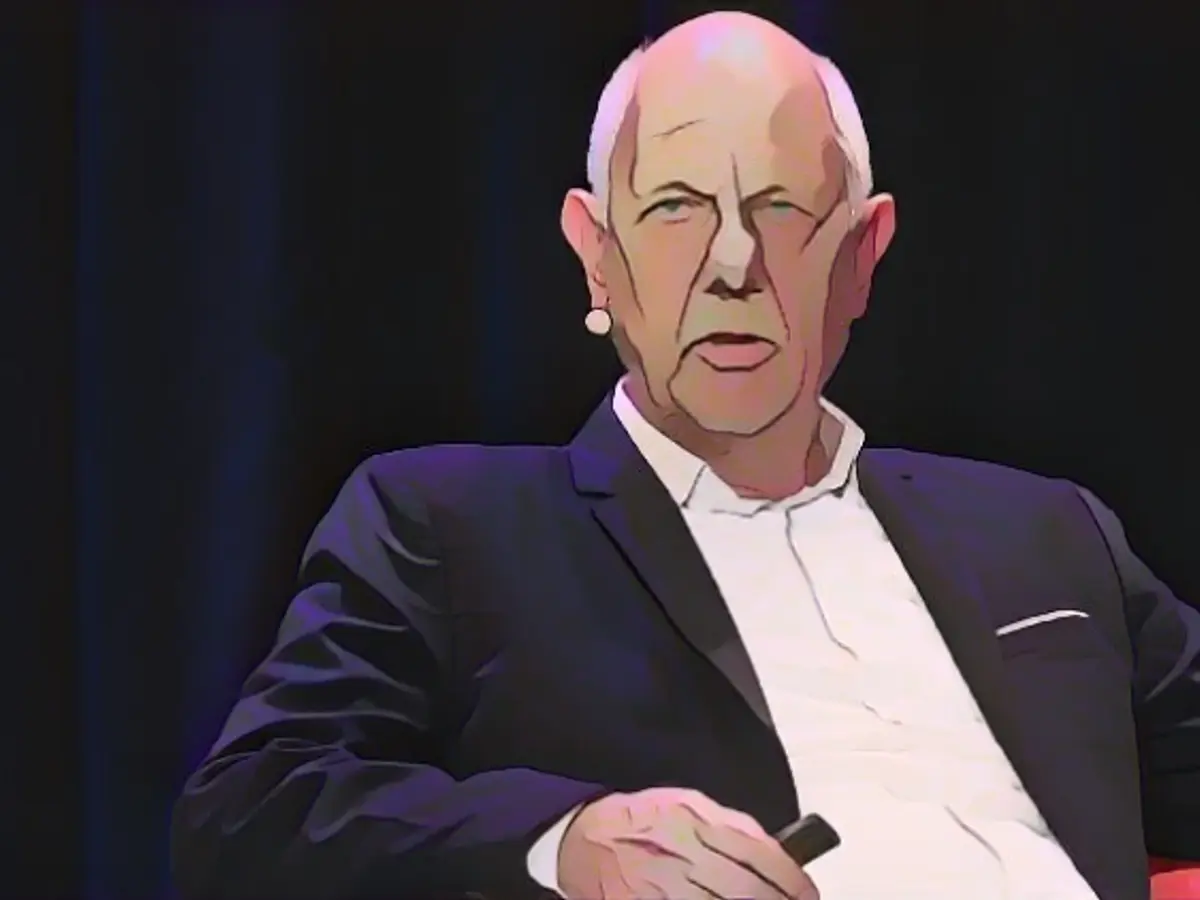Futurologist predicts up to 20 years of "omnicrisis"
As a futurologist, Matthias Horx sees a prolonged period of uncertainty approaching the world. At the same time, he is optimistic. "Authoritarianism will increasingly fail on its own terms," he explains. Indeed, he even sees an opportunity for a "common humanity project".
Trend and futurologist Matthias Horx calls the "interlocking crises of the present" an "omnicrisis". "Such omnicrises are typical of an epochal transition," says the 68-year-old publicist. "Every 50 to 100 years, the 'old normal' disintegrates and something new begins that initially seems uncertain." Such a period of uncertainty can last "10 or even 20 years". However, the more society participates in finding solutions, the quicker this period will pass.
Horx worked for a long time at the Zukunftsinstitut in Kelkheim, Hesse. Together with other researchers, he founded the think tank "The Future Project" in Frankfurt am Main last October, which focuses primarily on transformation processes.
According to Horx, the Russian war of aggression against Ukraine has "awakened society from a decades-long illusion: that the world is becoming increasingly peaceful and integrated." Horx speaks of the "shock of the turning point" and explains: "We are seeing that globalization is not working the way we thought it would." However, such shocks can also be beneficial. "They make us realize what is worth fighting for, what values we should stand up for."
Trends and counter-trends
Ultimately, it is about the emergence of a new world order, says Horx. The "omnicrisis" also includes a crisis of democracies worldwide. "Autocracies seem to be taking over everywhere," says the researcher. But every trend also creates a counter-trend. "It is necessary for civil society to find answers to vicious populism and for new forms of movements and parties to reform democracy."
The example of Europe also shows "that times of crisis can create amazing unity", says Horx. Europe has proven itself "in the turbulence of corona and Ukraine". Despite "a kind of anti-Europe whining habit", many people are gradually realizing "how much we need Europe as a continent, all the more so in a turbulent world".
The dispute between the "traffic light" factions in the German government tells of the enormous difficulties of making sensible policies at all in the age of media populism, says Horx. "Arguing is a way of moderating conflicts through compromise." This is done in every family and has "proved very successful". In the "media over-excitement society", however, "noise" tends to be staged and every gap is used by the opposition to create instability. "This sense of chaos gives rise to authoritarianism, which always offers simple solutions that it simply doesn't have." Horx is convinced: "Authoritarianism will increasingly fail because of itself." He believes it is "very likely" that Donald Trump will fail in 2024.
Change in the world of work
When it comes to the changing world of work, Horx sees a gradual end to the industrial model with its rigid norms. This change is being driven more by younger people. More and more people are looking for more flexibility in their work-life constellation. "In 20 years, standard employment contracts will probably be in the minority."
Horx believes that moving away from coal, oil and gas can bring the countries of the world together in a "common human project". Solar energy is blossoming worldwide, more and more countries are seriously committing to climate targets and new decarbonization technologies (reduction of carbon dioxide emissions) are being developed. "I see the greatest danger in the mood tipping towards the apocalyptic."
Read also:
- This will change in December
- Attacks on ships in the Red Sea: shipping companies avoid important trade route
- Houthi rebels want to launch further attacks despite international coalition
- USA forms military coalition against Houthi attacks on ships in the Red Sea
The ongoing Ukraine conflict and the Russian aggression have served as a wake-up call, according to Matthias Horx, dismantling the illusion of a peacefully integrating world. This crisis, along with the Corona crisis, falls under the broader term of "omnicrisis" - a period of upheaval and uncertainty associated with global transition. In the realm of education, understanding and addressing these crises becomes crucial, as they challenge our notion of a globalized world. The collaboration and participation of societies in finding solutions can expedite the end of this uncertain period.
Source: www.ntv.de







